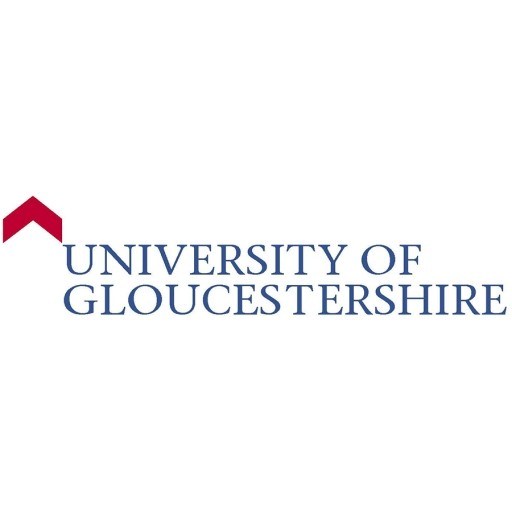Photos of university / #unikentlive
History and Philosophy of Art and Drama at the University of Kent offers students a unique interdisciplinary approach to understanding the development, context, and meaning of visual arts and theatrical performance. This programme combines rigorous academic analysis with opportunities for critical engagement, encouraging students to explore the historical evolution of art and drama across different cultures and periods, while also examining the philosophical questions that underpin artistic practices and theatrical expressions. Throughout the course, students will engage with a diverse range of topics, including the analysis of iconic artworks, the philosophical debates surrounding aesthetics and representation, the history of theatrical movements, and the social and cultural impacts of art and drama in various societies. The programme equips students with essential skills such as critical thinking, research, and analysis, preparing them for careers in arts management, curation, education, theatre production, or further academic research. Taught by experienced academics and practitioners, the course includes lectures, seminars, workshops, and opportunities for hands-on engagement with artworks and performances. Students will also have access to the university’s excellent facilities, including galleries, theatres, and extensive library resources. The programme emphasizes developing a nuanced understanding of how art and drama influence and reflect societal values, political contexts, and human emotions. Graduates from this programme will be well-positioned to interpret artistic and theatrical works within complex historical and philosophical frameworks, making them valuable contributors to cultural institutions, educational organizations, and creative industries. The interdisciplinary nature of the programme fosters a broad intellectual perspective, encouraging students to think critically about the role of aesthetics and dramaturgy in shaping human experience across different contexts and eras.
Detailed Course Facts
Application deadline January 15 Tuition fee- GBP 9000 Year (EEA)
- GBP 12450 Year (Non-EEA)
Total Kent credits: 360
Credits 360Total Kent credits: 360
Duration full-time 36 months Partnership Joint Languages Take an IELTS test- English
Course Content
The course structure below gives a flavour of the modules that will be available to you and provides details of the content of this programme. This listing is based on the current curriculum and may change year to year in response to new curriculum developments and innovation. Most programmes will require you to study a combination of compulsory and optional modules, you may also have the option to take wild modules from other programmes offered by the University in order that you may customise your programme and explore other subject areas of interest to you or that may further enhance your employability.
Stage 1
Possible modules may include:
DR315 - Modern Theatre: A Theoretical Landscape
DR337 - The Empty Space
HA315 - The Shock of the Now: Themes in Contemporary Art
HA355 - Introduction to the History of Art
You have the opportunity to select wild modules in this stage
Stage 2
Possible modules may include:
DR681 - Theatres of the Past 2: The Moderns
DR658 - Explorations in Theatre Practice
DR674 - Performance and Art: Intermediality from Wagner to the Virtuals
DR594 - Popular Performance
DR609 - European Naturalist Theatre & Its Legacy
DR612 - Shakespeare's Theatre
DR575 - Victorian and Edwardian Theatre
DR549 - Acting
DR663 - Physical Theatre 1
DR667 - Site Specific Performance
DR669 - European Theatre from 1945
DR671 - Making Performance 1
CL608 - Greek Art and Architecture
CL609 - Roman Art and Architecture
CL623 - Minoan Art and Architecture
HA502 - Art & Architecture of the Renaissance
HA511 - Patronage & Cultural Organisation in 20th Century Britain
HA597 - The Sublime, the Disgusting and the Laughable
HA598 - High Art and Low Life
HA594 - Photography and Intuition
HA653 - Exposed: The Aesthetics of The Body, Sexuality and Erotic Art
HA505 - French Painting in the 19th Century
HA507 - Reading the Image
HA554 - Contemporary Art:From Warhol to Whiteread: Postmodernity & Visual Art Pr
HA559 - Abstraction And Construction in 20th Century Art
HA573 - Print Collecting and Curating
HA580 - Camera, Light and Darkroom: Intro to Black & White Photography
HA586 - Photographic History & Aesthetics 1: Realism in Theory and Practice
You have the opportunity to select wild modules in this stage
Stage 3
Possible modules may include:
DR539 - Drama Dissertation
DR664 - Physical Theatre II
DR659 - Performing Classical Texts
DR676 - Introduction to Stand Up
DR678 - Creative Project
DR679 - Work Placement - Drama
DR572 - Scenography: Practice and Theory
DR548 - Theatre & Journalism
DR592 - New Directions
DR610 - Performing Lives: Theory & Practice of Autobiographical Theatre
DR619 - Playwriting I: For Beginners
DR629 - Cultural Policies in the British Theatre
DR635 - Dance & Discourse: Dramaturgies of Moving Bodies
DR636 - The Shakespeare Effect
DR648 - Applied Theatre
HA586 - Photographic History & Aesthetics 1: Realism in Theory and Practice
HA580 - Camera, Light and Darkroom: Intro to Black & White Photography
HA573 - Print Collecting and Curating
HA579 - Visual Arts Internship
HA559 - Abstraction And Construction in 20th Century Art
HA554 - Contemporary Art:From Warhol to Whiteread: Postmodernity & Visual Art Pr
HA507 - Reading the Image
HA505 - French Painting in the 19th Century
HA594 - Photography and Intuition
CL653 - Minoan Art and Architecture
HA589 - Independent Dissertation in the History and Philosophy of Art
HA598 - High Art and Low Life
HA649 - Exposed: The Aesthetics of the Body, Sexuality and Erotic Art
HA597 - The Sublime, the Disgusting and the Laughable
HA511 - Patronage & Cultural Organisation in 20th Century Britain
HA502 - Art & Architecture of the Renaissance
CL609 - Roman Art and Architecture
CL608 - Greek Art and Architecture
You have the opportunity to select wild modules in this stage
English Language Requirements
IELTS band : 6.5
To study at this university, you have to speak English. We advice you to
take an IELTS test.Requirements
The University will consider applications from students offering a wide range of qualifications, typical requirements are listed below, students offering alternative qualifications should contact the Admissions Office for further advice. It is not possible to offer places to all students who meet this typical offer/minimum requirement.
Qualification, Typical offer/minimum requirement
- A level: AAB
- Access to HE Diploma: The University of Kent will not necessarily make conditional offers to all access candidates but will continue to assess them on an individual basis. If an offer is made candidates will be required to obtain/pass the overall Access to Higher Education Diploma and may also be required to obtain a proportion of the total level 3 credits and/or credits in particular subjects at merit grade or above.
- BTEC Level 3 Extended Diploma (formerly BTEC National Diploma): The university will consider applicants holding BTEC National Diploma and Extended National Diploma Qualifications (QCF; NQF;OCR) on a case by case basis please contact us via the enquiries tab for further advice on your individual circumstances.
- International Baccalaureate: 34 points overall or 17 points at HL
Work Experience
No work experience is required.
Related Scholarships*
- Academic Excellence Scholarship
"The Academic Excellence Scholarship can provide up to a 50 % reduction in tuition per semester. These scholarships will be renewed if the student maintains superior academic performance during each semester of their 3-year Bachelor programme. The scholarship will be directly applied to the student’s tuition fees."
- Access Bursary
Bursary for UK students all subjects where the variable tuition fee rate is payable.
- Alumni Bursary
Alumni Bursary for UK Undergraduate students
* The scholarships shown on this page are suggestions first and foremost. They could be offered by other organisations than University of Kent.
Funding
Kent offers generous financial support schemes to support eligible undergraduate students during their studies. Our 2015 entry support package has not been finalised. However, our 2014 financial support package included a £6,500 cash bursary. Find out more on our funding page.
General scholarships
Scholarships are available for excellence in academic performance, sport and music and are awarded on merit. For further information on the range of awards available and to make an application see our scholarships website.
The Kent Scholarship for Academic Excellence
At Kent we recognise, encourage and reward excellence. We have created the Kent Scholarship for Academic Excellence, which will be awarded to any applicant who achieves a minimum of AAA over three A levels, or the equivalent qualifications as specified on our funding pages. Please note that details of the scholarship for 2015 entry have not yet been finalised and are subject to change.
The History and Philosophy of Art and Drama programme at the University of Kent offers students a comprehensive exploration of the development, theoretical foundations, and cultural significance of visual arts and theatrical performance. This interdisciplinary course combines rigorous historical analysis with philosophical inquiry to provide a holistic understanding of the arts from ancient to modern times. Students will examine key artistic movements, influential artists, and groundbreaking theatrical works while engaging with critical debates surrounding aesthetics, interpretation, and artistic value. The programme emphasizes the development of analytical and interpretative skills through a variety of teaching methods, including lectures, seminars, workshops, and project-based assessments. Students also have opportunities to study primary sources, engage with museum and gallery collections, and participate in practical workshops to deepen their understanding of art creation and performance. The programme encourages critical reflection on the role of art and drama in society, exploring their impact on identity, politics, and cultural change. Graduates of this course are well-equipped for careers in arts management, cultural policy, education, curation, and related fields, or further academic research. The University of Kent supports students with dedicated academic advising, access to extensive research resources, and opportunities for interdisciplinary collaboration. The programme's flexible structure allows students to tailor their studies according to their interests, combining coursework from both art history, philosophy, and drama departments. Overall, this programme aims to foster a critical appreciation of the arts, develop research competencies, and prepare students to contribute meaningfully to cultural sectors and academic discourse.







